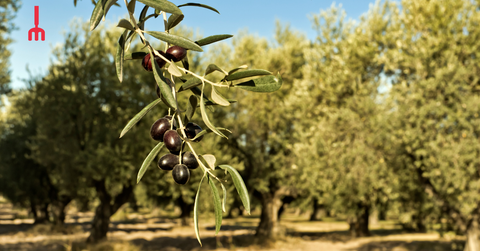What Makes Extra Virgin Olive Oil the Best Choice?
When it comes to selecting the perfect extra virgin olive oil (EVOO), the choices can be overwhelming. With various brands, labels, and regions of origin, it's essential to know what to look for to ensure you're getting a high-quality product. In this guide, we'll delve into the key factors to consider when choosing your EVOO.
Check the Label: Begin by examining the label. Look for terms like "extra virgin," "cold-pressed," and "harvest date." These indicate that the oil is of superior quality, extracted without heat or chemicals, and provides information about when the olives were harvested.
Country of Origin Matters: Different countries produce olive oils with distinct flavors and characteristics. Italian oils are known for their robust taste, while Spanish oils are often fruity. Greek oils may have a peppery finish. Understanding these regional differences can help you choose an oil that aligns with your taste preferences.
Look for Dark Bottles: Opt for oils packaged in dark glass bottles. Exposure to light can degrade the quality of olive oil over time. Dark bottles protect the oil from harmful UV rays, ensuring it maintains its flavor and nutritional properties.
Consider the Harvest Date: Freshness is crucial when it comes to EVOO. Look for bottles that display a clear harvest date. The fresher the oil, the more vibrant and intense its flavors will be. Aim for oils harvested within the last 12 to 18 months for optimal taste.
Acidity Levels: Quality EVOO typically has low acidity levels. Check the label for the acidity percentage, as this can affect both the taste and health benefits of the oil. Lower acidity levels often indicate a better-quality product.
Go for Unfiltered Varieties: Unfiltered oils may have a cloudy appearance, but they also retain more natural olive flavors and antioxidants. Choosing an unfiltered EVOO can enhance both the taste and nutritional value of your oil.
Read Customer Reviews: Take advantage of online resources and read customer reviews. Grocery shopping platforms like Magnifico Food or specialty food websites often feature valuable insights from people who have already tried the product. This can provide a more personal perspective on the oil's taste, aroma, and overall quality.
Consider the Price: While quality often comes at a price, that doesn't mean you have to break the bank. Be wary of excessively cheap options, as they may not meet the standards of true extra virgin olive oil. Invest in a product that strikes a balance between quality and affordability.
Choosing the right extra virgin olive oil requires a combination of label scrutiny, knowledge of regional variations, and an understanding of freshness indicators. By considering these factors, you'll be well-equipped to find an EVOO that not only enhances your culinary creations but also provides numerous health benefits.
Happy olive oil hunting!



